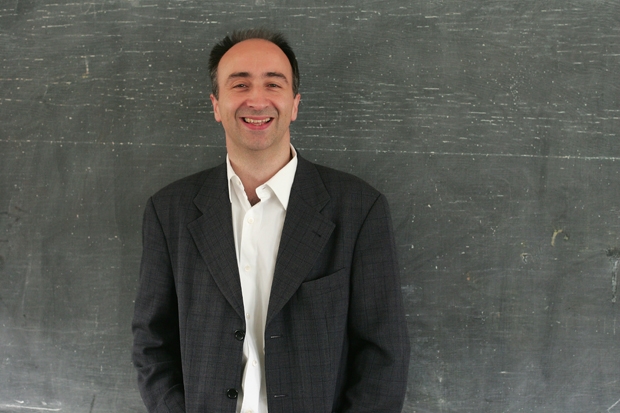State-of-criticism overviews and assessments almost always strike a bleak note —the critical mind naturally angles towards pessimism — so it can be worthwhile occasionally to announce that, against expectations, despite everything, literary criticism is still alive and in print. Recent technological and economic threats have not been as damaging as the so-called theory wars of the 1970s and 1980s, and while theory does colour some recent fiction (treated with ironic humour by Jeffrey Eugenides, say, or with cramped loyalty by Tom McCarthy), critics outside the academy now act as though it has been vanquished through institutional assimilation; the models are Edmund Wilson and Clive James, not Derrida and de Man.
In his brief, personal new book, adapted from a series of lectures, James Wood is diplomatic about what has been left behind. For him, the theory wars ‘have ended in a productive stalemate, in which, roughly speaking, both sides won’. He goes on to explain his critical ideal, which he calls ‘writer’s criticism’ or ‘writerly criticism’. ‘Such criticism… is situated in the world, not behind scholarly walls, and is unafraid of making use of anything that comes to mind or hand.’ It exists ‘as literature… and it is the kind of criticism that should give evaluation a good reputation’.
Part of Wood’s authority comes from a seriousness that is pre-theory, perhaps even pre-modernism. Literature is life and death, holier than God (his sole novel is titled The Book Against God). Reading fiction gives us ‘the uncanny powers of the monitoring Jesus, but the humane insight of the forgiving Jesus’, and a novelistic understanding of human nature ‘seems to put one at an almost priestly advantage over people’s souls’.
Wood elevates particular details above structure and form, sometimes to an ecstatic degree: ‘At least four times a week I think of Nabokov’s great defamiliarising joke in Pnin, about how the workmen come back day after day to the same spot in the road, to try to find the lost tool they accidentally entombed.’ This is a strange thing to write (the specific ‘at least four times a week’ feels like a joke) except it does show, in a disarming way, how these ‘bits of life’ return to fiction-obsessed readers, frequently and mysteriously.
In the introduction to his new collection of essays, Michael Hofmann, who is similarly unimpressed by theory, seems to follow the Woodian line: ‘I aimed to write an homage… to literature in something that itself approached the condition of literature.’ Beyond this, however, the two writer-critics have very little in common. Hofmann is primarily a translator-poet, for one thing, and he has a taste for spare and abstruse verse — Ian Hamilton, Elizabeth Bishop, James Schuyler — instead of the thick cream of realist novels.
Where Wood is measured and tidy, Hofmann is rabid and profuse. Stefan Zweig is ‘an absolutely natural and absolutely dreadful writer’, and every page of his is ‘sodden, formulaic, thin, swollen, platitudinous’. Hofmann isn’t usually this aggressive, but when he likes something he can be just as breathless, reaching for his deep stock of adverbs: James Schuyler’s poems ‘take very small steps tremendously irresolutely’, then later in the same (long) paragraph a Schuyler poem ‘sounds potentially tremendously powerful’.This unruly way with language can slip into a regrettable fondness for puns: W.S. Graham’s ‘grahamiphone’ is a ‘fine’ pun, apparently, while ‘The bard will have flown’ is not so fine.
Of more concern than the prospective demise of criticism is the lack of fresh material to criticise — and here the pessimism creeps in. Hofmann’s essays deal mostly with the dead or the old — the Canadian poet Karen Solie is the only living subject who is not of pensionable age — and his recent, as yet uncollected reviews of Martin Amis and Richard Flanagan come close to despair (‘The Narrow Road to the Deep North is the novel in an advanced and showy state of dissolution’). When contemplating the decline of poetry since the death of Robert Lowell, Hofmann writes: ‘It’s as though the human reef of literature was not considering any more applications, or the escalator had ground to a halt.’ We can allow him this without taking it to heart. A critic is entitled to his share of misery, even when things could be a hell of a lot worse.
'The Nearest Thing To Life'. £10.99 and 'Where have you Been', £24 are available from the Spectator Bookshop, Tel: 08430 600033






Comments